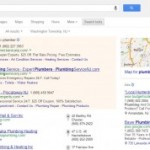Duplicate Content and the Big G
Duplicate content is one of the most misunderstood issues in SEO. Many people believe Google penalizes you for it, many think it really doesn’t matter, and others just don’t care. A client recently asked how close content could be for multiple sites that he contributes to. It’s a great question. How Google handles duplicate content is tricky. Here is what you need to know about how Google handles duplicate content.
What Is Duplicate Content?
Yes, it sounds like an obvious question with an obvious answer. Duplicate content is the same content on multiple website pages, whether they are all on your site or on your site and another site. However, even if the content is changed some, it can still come under the classification of duplicate content. In order to not be considered duplicate content, the website must have enough unique content to make it noticeably different from the original page. For example, you can’t just change the name of a town from one page to another and leave all the other content the same. You’ll need to include some unique information about that town or services for that town.
What Does Google Do with Duplicate Content?
So, here’s the big question. How does Google actually deal with duplicate content? They actually handle it two different ways.
1. They hide results. There typically isn’t a penalty for duplicate content. What Google actually does is hide one of the pages and prevents it from coming up in search results. So, if you have a page on site A about a doctor and a page on site B about the same doctor, and both bios are identical, you will not see them both come up in search results. One of the pages will show up, and the other will be hidden. If you do go all the way to the end of the search results (kind of hard for results where there are a million results), there will be a note from Google that pages with similar results have been omitted to provide variety, and a link to click to see the omitted results. So, if you have duplicate content, it’s hidden and basically irrelevant. Even worse, if it’s on the page that you would prefer not to have show, you wind up without presenting the result you’d like.
If you do have two websites that need to be shown, make sure that you alter the content enough. If there are two different websites, highlight angles specific to the websites being shown. Use some content to differentiate between the pages.
2. They ban your site. So, although there typically isn’t a penalty for duplicate results, it can happen. This is typically for syndication sites that simply take content from other websites and repost as their own with no original content. When there’s no original take or value added, Google sees it as something that doesn’t add value to the internet and may impose a penalty. If you have a site like this, the best thing to do is post an article and respond – add your thoughts or challenge the article. This can help you to avoid an actual penalty.
Best to Just Avoid It
The best thing to do is just avoid duplicate content. If you must have duplicate content on your site, make sure you do at least something to differentiate it.
Update: Matt Cutts from Google on Duplicate Content
And here is a video from Matt Cutts directly answering the question (for those who are unfamiliar, Cutts is the head of the webspam team at Google – they pretty much control the algorithm that determines search results)
Have you had issues with duplicate content? I’d love to hear what happened in the comments below. We all learn better together!





